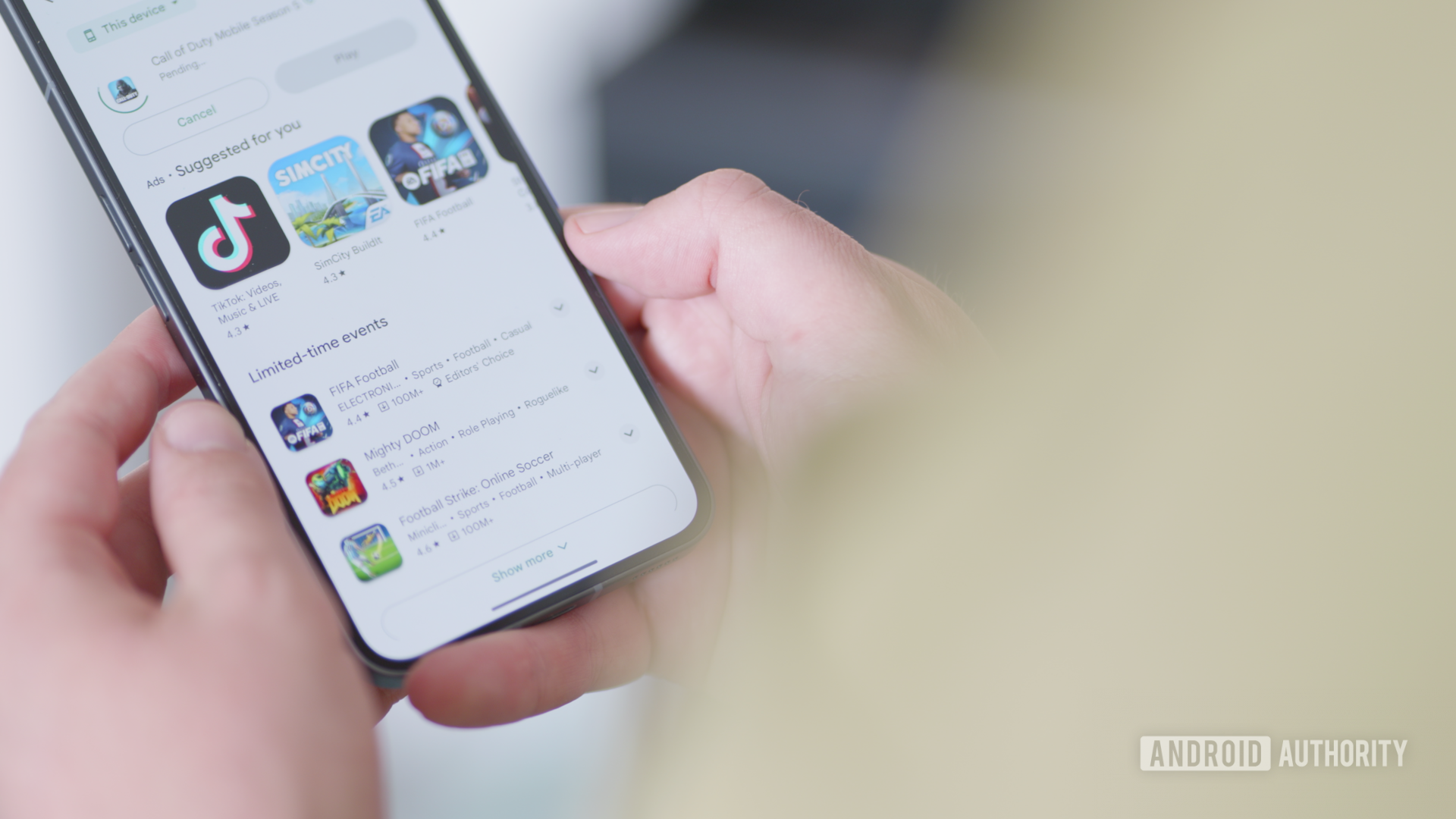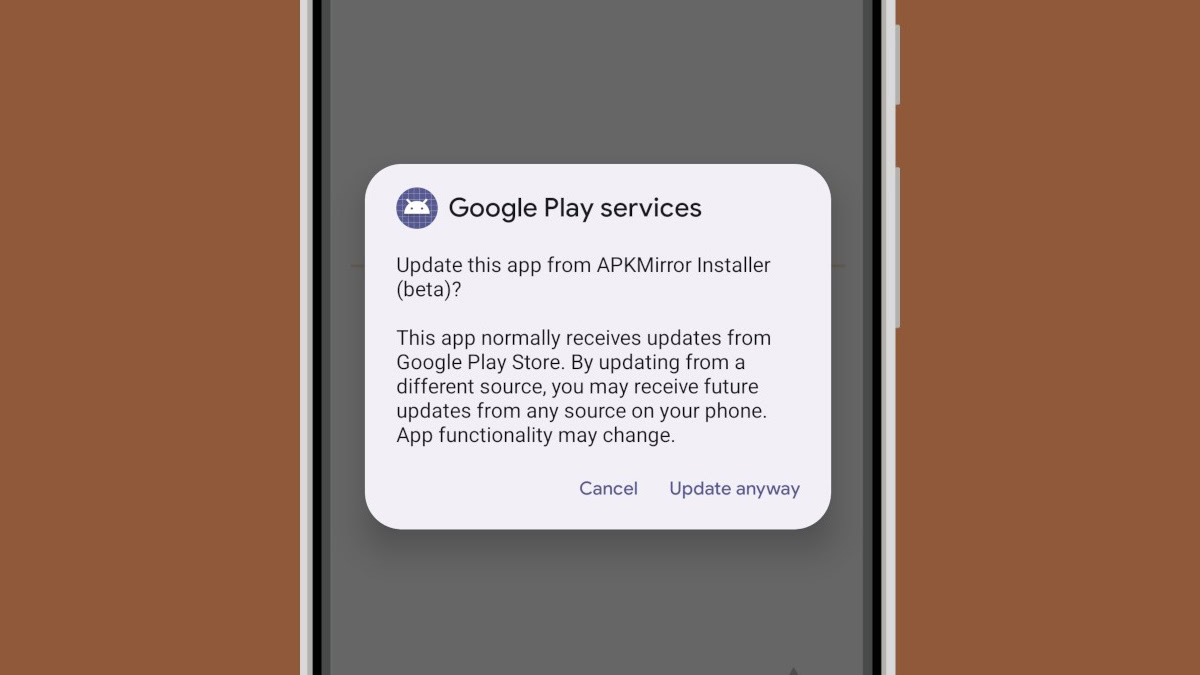Affiliate links on Android Authority may earn us a commission. Learn more.
Here's how Android 14 will warn you when you try to sideload some Google apps
Published onJuly 17, 2023

- Android 14 introduces new APIs for letting app stores claim “update ownership” over the updates of apps.
- This could have tilted the scales in favor of the Play Store once again, but it seems Google has balanced it well.
- Play Store has claimed update ownership over only Google Play Services so far, and we now have a look at what the warning looks like.
There has always been regulatory oversight over big tech, but scrutiny has increased in the past few years against monopolistic practices as these practices increased. Google has been under investigation for the same, and as a result, the company has been opening up Android to play nicer with third-party app stores. Android 14 includes a feature called “update ownership” for the same, and thankfully, Google is letting the Play Store claim ownership only over some core Google apps for now.
According to a report by Android expert Mishaal Rahman (via AndroidPolice), Google is using the update ownership feature within Android 14 to wield control over only a few core Google apps for now. This lets the Play Store claim ownership over the app it installs.
If any other app store attempts to update that app, Android 14 will warn the user about the action and ask them where they want to update the app from.
This is what the warning prompt looks like:
When the feature was first spotted in February, there were concerns that the Google Play Store could take over update ownership for all apps installed through it. When users first begin using a phone with a pre-installed Google Play Store, most of the apps they install would be from the Play Store itself, giving it ownership for updates for all of those apps (as the situation remains on older Android versions). This wouldn’t do much to help bring parity to third-party app stores and would limit the feature’s practical functioning.
While the feature is live on Android 14, the Play Store is claiming update ownership only for core apps like Play Services. Apps like Gmail and even the Play Store itself were not claimed by the Play Store, meaning you could update these apps from other app stores without a scary warning showing up on your screen. Keep in mind that not all Google apps were tested, so there could be some more apps that the Play Store is claiming ownership over.
This is great news for third-party app stores, as it reduces the frictions that Google had imposed on sideloading apps on previous Android versions without fundamentally breaking how Android and the Play Store function.
Mishaal mentions that letting the Play Store control ownership over Play Services is a good choice, as Google distributes many different versions of the Play Services app. Sideloading an incompatible version of Play Services could break functionality that many other apps depend upon. So throwing up a scary-looking warning in this scenario does make a lot of sense to us. Users who know what they are doing can ignore the warning and proceed forward, in which case the original app store loses ownership.
